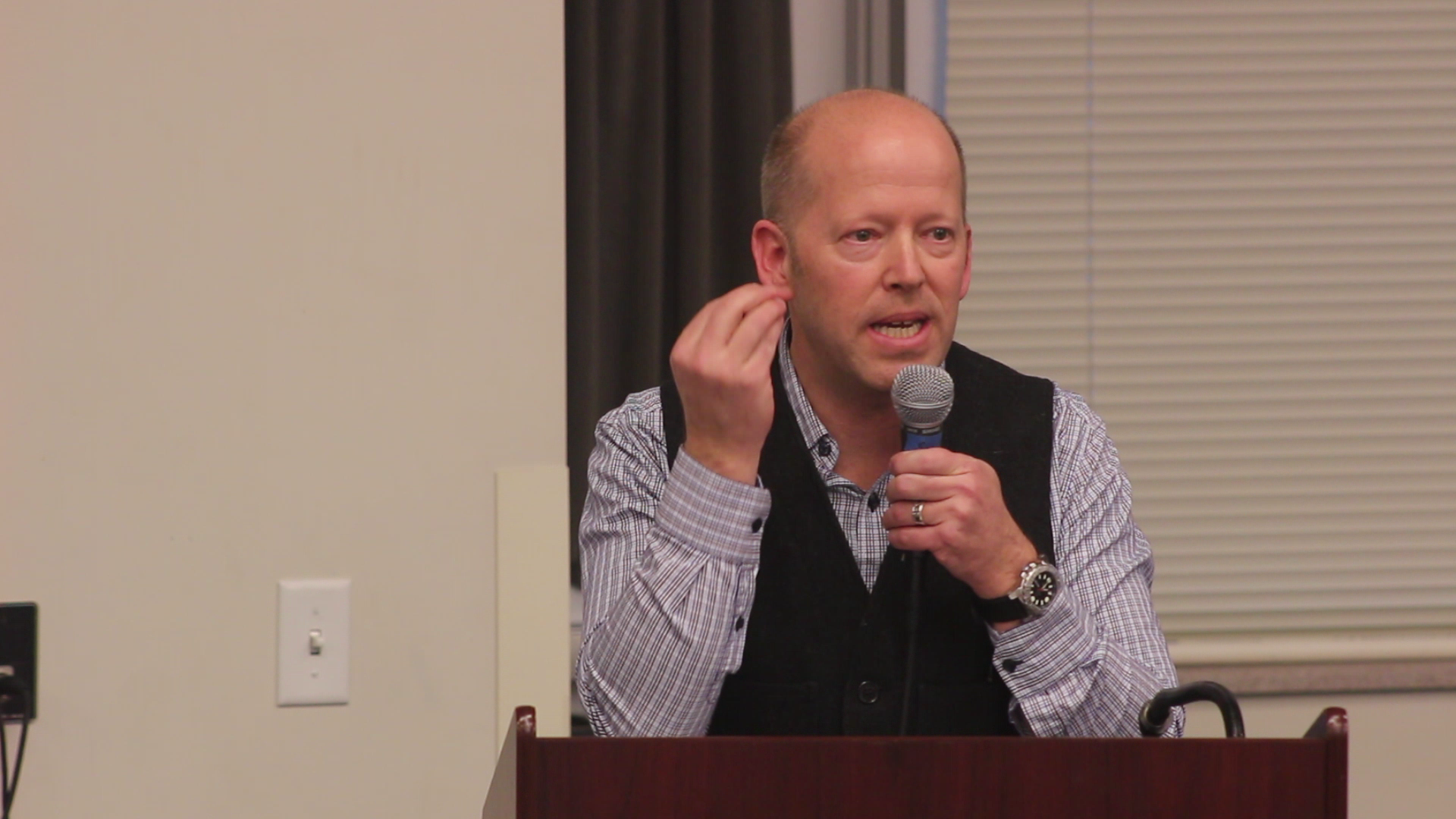ST. GEORGE — Legislation creating a new agency focused on the preservation and promotion of Utah’s interest in the Colorado River passed a House committee Thursday.

While supporters say the bill will help give the state a much-needed edge when working with other Colorado River states, opponents claim it creates a shadowy agency that will foster backdoor deals that will push through the Lake Powell Pipeline.
“All this does is establish a more productive framework in dealing with other states on the Colorado River,” House Speaker Brad Wilson, R-Kaysville, told the House Natural Resources, Agriculture and Environment Committee Thursday while presenting House Bill 297.
The 53-page bill creates the Colorado River Authority of Utah and aims to bring the state’s best minds together for the purpose of finding the best ways to use and protect Utah’s portion of the Colorado River, said Gene Shawcroft, the state’s newly appointed Colorado River Commissioner.
Shawcroft also called the Colorado River a “water engine” as the water it provides helps build and move the state’s economy.
“We definitely have been behind the times relative to other states,” Wilson said, noting that other Colorado River Basins states already have similar agencies in place that helps give them an advantage when it comes to negotiating the use and share of the river. “We don’t have that. This is the disadvantage we come to the table with …. Right now, we are outgunned and outmatched.”
Wilson nonetheless added that Utah wants to continue the spirit of collaboration it has enjoyed and shared with its fellow Colorado River Basin states, just on more of an equal footing.

The state’s Colorado River Authority will be led by a six-member board representing various parts of the state. It will also take $9 million to set up and $600,000 to run annually, according to a legislative fiscal note.
Over 60% of Utahns get their drinking water from the Colorado River, Shawcroft said, and that demand is growing in Utah and across the Colorado River Basin. Growth and drought are considered the two biggest challenges to the state’s use of the Colorado River and the new agency will best help address that, he said.
Rep. Joel Briscoe, D-Salt Lake City, who ultimately voted against the bill along with fellow committee member and Democrat, Rep. Gay Bennion, asked about the bill’s allowing the new agency to hold closed closed-door meetings. It was a concern shared by bill opponents during the public comment portion of the bill’s hearing.
“What I don’t understand it why (this bill) removes the meetings of the Colorado River Authority from the Open Public Meetings Act of Utah?” Briscoe said.
Shawcroft said the general intent is to have the authority be as open and transparent as possible, but noted there would be times closed down meetings were necessary. Examples of this are when strategies on how to use the Colorado River and how to best work with and against other Colorado Basin states.
“Some of those negotiation points – if they’re made and available – then that diminishes our ability to negotiate with the other states,” he said.

Deeda Seed, of the Center for Biological Diversity, said the closed sessions were still a note of concern.
“Why do this behind closed doors? This is clearly designed to shut the public out of the process,” she said.
While the bill allows certain meetings to be exempt from Utah’s Open Meetings Act, that exemption is specifically narrow and is not a blanket one, Wilson said.
Among the more vocal of the bill’s critics was Zachery Frankel, the executive director of the Utah Rivers Council, which has been a long-standing opponent of the Lake Powell Pipeline.
“This bill is not what we’ve heard,” he said. “This bill is not about water. This bill is about money. It’s about special interest politicking. It’s about climate change denial. It’s about limiting public government.”
He further stated the bill was a front for lobbyists who have invested millions into the Lake Powell Pipeline “boondoggle” and could trigger a “water war” with other states by continuing to promote the “mythologies and ignorance and misinformation” of Utah’s claim to the Colorado River.
Utah, Frankel said, lays claim to 23% of the Colorado River after obligations to the Lower Colorado Basin are met, as per the Colorado River Compact, and not necessarily the 1.4 million acre feet of water that state officials say it does.
“Once again, we’re seeing special interests ramming through bad Legislation,” he said.

The Colorado River, often called the hardest working river in the West, supplies water to 40 million people across California, Nevada, Arizona, New Mexico, Colorado, Wyoming and Utah, as well as Mexico. However, in recent years the river has also been subject to the impacts of the changing climate and a drought that has persisted for over 20 years.
In 2007, guidelines were put in place meant to lessen the blow of any future cuts in the water supply for growing areas, giving states an idea of what to expect each year and ways to manage the risks. The guidelines and an overlapping drought contingency plan expire in 2026. Officials in Colorado River Basin states have told the Interior Department that they have started talking about what comes next.
“The Colorado River is one of the highest priorities in the state right now,” Brian Steed, executive director of the Utah Department of Natural Resources, told the committee. “Water is our future, and the competition for that water is not going to get any less moving forward. Protecting Utah’s rights to the Colorado River is paramount to that future.”
House Bill 207 passed the House Natural Resources Committee in an 11-2 vote and moves to the House floor.
The Associated Press contributed to this story.
For a complete list of contacts for Southern Utah representatives and senators, click here.
Check out all of St. George News’ coverage of the 2021 Utah Legislature here.
Copyright St. George News, SaintGeorgeUtah.com LLC, 2021, all rights reserved.